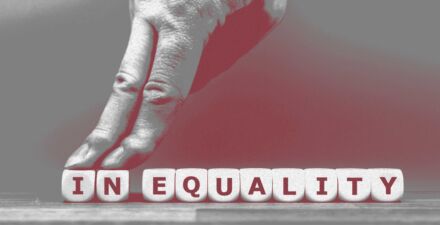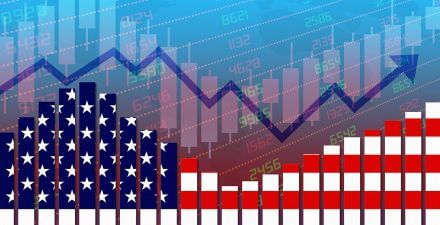Some of our most prominent economic statistics measure change in the total output of the U.S. economy. But this single number approach to economic progress rings hollow with many workers, who wonder why they aren’t seeing prosperity in their own lives. The goal of our GDP 2.0 project is to break down these monolithic numbers and understand how the economy is performing for Americans of different income levels, different regions of the country, and more.
Featured work
New research doesn’t overturn consensus on rising U.S. income inequality
January 10, 2024
January 10, 2024
GDP 2.0: Measuring who prospers when the U.S. economy grows
July 11, 2023
July 11, 2023
Executive actions to modernize federal data collection and improve measurements of U.S. economic inequality
March 22, 2023
March 22, 2023
New digital tools demonstrate the promise of measuring well-being in the United States
December 21, 2022
December 21, 2022
Structural racism and the coronavirus recession highlight why more and better U.S. data need to be widely disaggregated by race and ethnicity
September 24, 2020
September 24, 2020
Explore Content in GDP 2.0212
Who Weathers the Storm? The Unequal Effects of Hurricanes in the United States
August 27, 2021
August 27, 2021
Which Policies are Effective at Reducing Racial Differences in the Intergenerational Transmission of Poverty?
August 27, 2021
August 27, 2021
Expert Focus: Intersections between racial equity and disaggregation of data
June 14, 2021
June 14, 2021
The imperative of focusing on racial equity in U.S. economic statistics
June 11, 2021
June 11, 2021
Sustained U.S. economic recovery depends on major equitable economic investments
June 11, 2021
June 11, 2021
Expert Focus: Examining and elevating the economic experiences of AANHPI populations
May 26, 2021
May 26, 2021
Data Infrastructure for the 21st Century: A Focus on Racial Equity
June 15, 2021 2:00PM - 3:30PM
New Great Recession data suggest Congress should go big to spur a broad-based, sustained U.S. economic recovery
March 4, 2021
March 4, 2021
Executive actions to improve U.S. economic measurements
March 3, 2021
March 3, 2021
Sovereignty and improved economic outcomes for American Indians: Building on the gains made since 1990
January 14, 2021
January 14, 2021
Explore the Equitable Growth network of experts around the country and get answers to today's most pressing questions!














